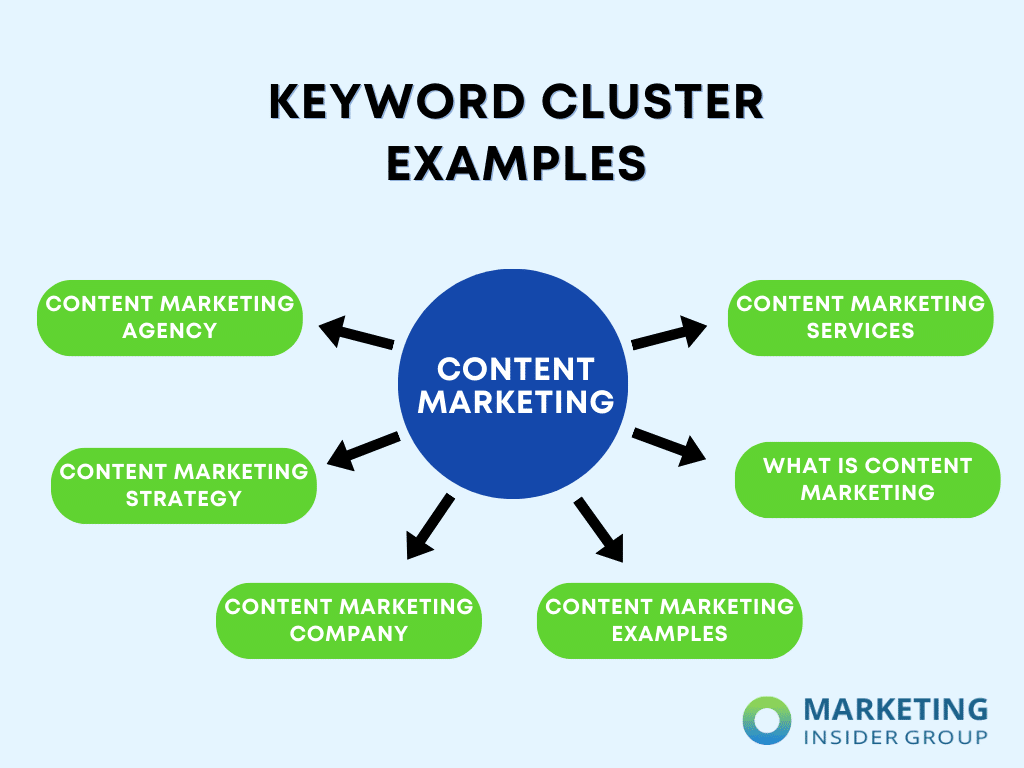
Google's tech experts have been diligently working on understanding language and the interconnectedness of words on a webpage. Tools like 'neural match' and BERT have been developed by Google to enhance its search engine with each update, making it more advanced.
Keeping Up with Google's Evolution
Despite Google becoming smarter, many website owners lag behind, still relying on outdated SEO techniques by optimizing their sites with a few keywords. This traditional SEO approach is no longer effective as pages now rank for multiple keywords.
The Importance of Keyword Clustering
For seasoned SEO professionals, adapting to Google's language understanding evolution is essential. This is where keyword clustering comes into play, revolutionizing on-page SEO strategies to align with Google's advancements.
Key Takeaways
- Keyword clustering boosts website traffic and engagement
- Three methods are available for keyword clustering, each with unique benefits and levels of expertise
- Nearly 95% of keywords receive 10 or fewer monthly searches
- Clustering keywords requires a broader content perspective to enhance long-term page rankings
Understanding Keyword Clustering
Keyword clustering involves grouping related keywords based on their topic, search intent, and semantic connections. This approach allows websites to rank for multiple keywords simultaneously, increasing traffic and engagement.
Implementing Keyword Clustering
Implementing keyword clustering involves a few simple steps to organize your SEO strategies effectively:
1. Creating a Keyword List
Begin by generating a list of relevant keywords using tools, brainstorming, or competitor analysis. This list should encompass keywords potential customers might use to find businesses like yours.

2. Sorting Keywords
Organize your keyword list based on similarities such as topic, search intent, or semantics. Target a group of keywords per webpage to enhance relevance.
3. Planning Your Keyword Strategy
Develop a strategy to target different keyword clusters on specific website pages. Prioritize keywords based on search volume and business objectives, focusing on low-volume keywords initially.
4. Optimizing Your Content
Optimize your content, whether existing or new, to ensure quality and value for readers. Incorporate other SEO techniques like meta tags and alt text for better optimization.
5. Tracking Keyword Rankings
Monitor your page rankings for target keywords using tools like Semrush to assess the success of your keyword clusters and make necessary adjustments.
Effective Keyword Clustering Methods
There are three primary methods for clustering keywords efficiently:
1. Manual Clustering
Manually organizing keywords based on similarities and ranking across search engine result pages (SERPs).

2. Clustering of Parent Topics
Grouping keywords with the same parent subject to create clusters for improved search engine performance.
3. SERP Similarity Clustering
Comparing SERPs to group related keywords that rank highly for the same page, enhancing search relevance.
Tools for Keyword Clustering
Several tools can assist in keyword clustering:
- Semrush: Comprehensive SEO software with keyword grouping features
- Ahrefs: All-in-one SEO tool offering keyword explorer for related keyword discovery
- Keyword Cupid: Dedicated keyword clustering tool using machine learning algorithms
- Google Keyword Planner: Ideal for initial keyword research and manual clustering
- Moz Keyword Explorer: Provides keyword suggestions and search volume data
Unlock Your SEO Potential with Keyword Clustering
By utilizing keyword clustering, you signal to Google your website's authority and valuable content. Revamp your content strategy with keyword clusters to maintain high rankings and visibility in search results.
Contact us today for a consultation to explore our services further.
Frequently Asked Questions
What is eCommerce Marketing?
Ecommerce marketing is simply online shopping. It's the act and practice of selling products on the internet. This includes buying goods from companies to sell them over the internet. If you are an individual seller, selling on eBay is possible. You could also set up a business to sell your goods for profit. Selling products online is the best way to make money.
Here are more details concerning eCommerce marketing
Creating a successful eCommerce site involves finding out what type of products you want to sell. You should then decide whether you will offer one item (such a book), multiple items (such DVDs and books), or both.
Once you have a clear idea of what you are offering, it is time to look for a supplier. A supplier is a company that makes and sells the product you want to sell. A supplier is a company that manufactures and sells the product you are looking to sell.
After finding a supplier, create a website to showcase the products and allow buyers buy them. You can either use templates provided by suppliers or you have to create your own template. After you have your website built, it's time to market it. This includes posting content on forums and blogs, advertising on sites like Google Adwords and sending emails to the relevant contacts.
There are several different channels available when it comes to promoting your eCommerce business. These channels include email, social media, search engines, and mobile apps.
- Email marketing is a smart choice for most companies. It's cost-effective, easy to implement, and delivers results. It takes time and effort to generate high quality leads.
- Search engine optimization (SEO), is a technique that improves a website's ranking for certain keywords. It's usually done through link building, which helps pages rank higher in search engines.
- Promoting businesses is becoming more important through social networking sites such LinkedIn and Facebook. Many people use these websites every day to stay in touch with family and friends. Posting interesting articles on these sites can help you reach thousands of potential customers.
- For eCommerce marketers, mobile apps can also be a great tool. People love shopping with their tablets and smartphones. Apps allow you to reach customers from anywhere.
eCommerce has grown to be a huge business. There are many methods to promote your business. Choose wisely so you can reap the benefits of eCommerce marketing.
Why is it so important to define your brand?
Your company's brand is nothing more than a promise you make to your customers. Your brand is a promise that your company will deliver certain benefits and qualities that will make you stand out from the rest. Your brand is what sets you apart from other companies in the industry.
Your brand is a symbol of authority and credibility. Potential customers instantly recognize your company's logo when they see it. They trust you because they have respect for you.
Your brand is also an expression of your company's culture. If your employees are passionately involved in your brand, then it is probably reflective of your passion for the product or service.
Your brand is more that words and photos. Your company must live up to this promise. It is a promise that you will provide value for your customers.
When you set out to develop your brand, you need to consider several factors. First, choose a name and description that clearly describes your company. Sweet Dreams Bakery is a good example of a bakery name. But if you're running a software company, you'd probably go with something like DreamSpark Software.
Next, consider how your brand will be presented. Do you want to use a well-known symbol? Are you going to use corporate colors? Will you use logos
Finally, consider the perception of your brand by your target audience. Do you present yourself as helpful and friendly? Will you be trustworthy and professional looking? Are you able to communicate your knowledge and experience?
These are all important questions you should ask before building your brand.
How to Create an Ecommerce Marketing Plan
The first step is to define what you want. These should include products and/or services relevant to your business, but also enough variety to keep customers engaged.
The second step is to determine how much advertising, promotion, and other marketing strategies you will need. Multimedia marketing techniques may be needed, such as direct mail blasts, email blasts or social media.
Once you have a rough idea of your budget, you can start to plan for each option. If you're unsure which marketing method would be best for your business, you might consider asking a professional specializing in e-marketing. They will help determine the best method for you.
Once you have your plan in place you can begin to implement it. It is possible to hire someone else to assist you in this process.
Don't reinvent the wheel and start from scratch. Use proven strategies that have worked well for other online retailers. Be sure to verify everything before you make any changes.
Your ultimate goal should always be to increase your sales and profits. Your eCommerce marketing strategy has to take into consideration both short-term goals, and long-term objectives.
We have some eCommerce marketing tips that will help you boost your sales. We hope these tips help you to achieve success.
What are the 4 types?
Marketing can be divided into 4 categories: Direct Mail Marketing (Traditional Advertising), Public Relations (Public Relations) and Digital Marketing. Each has different objectives, and each should be used for specific purposes. You can combine them to achieve your goals.
Statistics
- This allows us to deliver CPCs that are 80% less than average and CTRs 4-5 times higher than average. (marketinginsidergroup.com)
- A poll earlier this year found that 14% of older Gen Z's had bought an item in the previous six months based on an influencer's recommendation. (influencermarketinghub.com)
- Today, 81% of brands around the world have affiliate programs. (influencermarketinghub.com)
- 81% of brands employ affiliate marketing, and eCommerce sites are particularly good candidates. (blog.hubspot.com)
- From 2020 to 2022, eMarketer predicts that digital marketing will grow by 36% and take up 54% of marketing budgets! (marketinginsidergroup.com)
External Links
influencermarketinghub.com
statista.com
blog.hubspot.com
hubspot.com
How To
Six Types of Ecommerce Marketing
How do I market an eCommerce store?
Ecommerce marketing has been called one of the most difficult marketing tasks. You need to learn about your customers' buying patterns and how they interact with you products and services. This knowledge allows you to build an effective strategy to help you reach your goals.
There are six kinds of eCommerce marketing strategies.
- Product Strategy – The first step is determining what kind of product you want to sell online. There are three main categories. These are physical goods (things), digital products (services), or membership sites. Once you have decided on the category you want to work in, you will need to decide if you are going to sell wholesale or retail. Wholesale pricing is when you decide the price at which you will sell your products. Retail pricing means that you charge your customers directly for your products.
- Pricing Strategy – Next, figure out how much revenue you would like to make by selling your products. Profit margins should be taken into consideration, as well as competition, shipping costs and taxes. You can increase your profits by lowering your cost per sale or increasing your sales volume when you are deciding on your pricing strategy.
- Promotion Strategy – Now comes the fun part! It is important to create a promotion strategy that will work best for your company. You can offer free shipping, special discounts or coupons. Try brainstorming new ideas for promotional items if you don’t have any.
- Shipping Strategy – After you've figured out how to promote your products, you need to think about how you will get them to people. Will you ship via USPS/FedEx, UPS, DHL or another delivery method? Are you going to use a fulfillment center or will you do it all yourself?
- Merchandise Management System (MSMS) – This software helps you track inventory, manage orders, fulfill orders, communicate with suppliers, and monitor orders. You have the option to choose from many systems, depending on your preferences and budget.
- Customer Service Strategy – You need to design a customer support strategy that will work for you business. What support options are available? Will they be via email or phone? Can customers contact you through live chat, social media, or even snail mail?
————————————————————————————————————————————–
By: 7006
Title: Ultimate Guide to Keyword Clustering in SEO
Sourced From: internetlib.org/keyword-clustering-the-only-guide-you-will-need/
Published Date: 7/24/2023 5:41:28 PM
